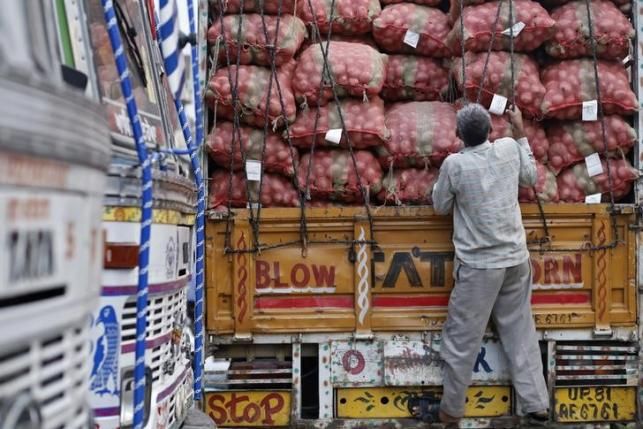 After necessary approvals, alignment of Assemblies and Parliament sessions’ timings to play crucial role, report Archis mohan and Indivjal Dhasmana
After necessary approvals, alignment of Assemblies and Parliament sessions’ timings to play crucial role, report Archis mohan and Indivjal Dhasmana
The Constitution (Amendment) Bill, passed by the Rajya Sabha on Wednesday, only gives authority to the Centre and states to frame laws on goods and services tax.
And that, too, only if at least 15 of the 29 states approve the legislation and the President gives his assent.
For the government to meet its GST roll-out deadline of April 1, 2017, the states will have to ratify the Bill before Parliament’s winter session, starting November.
Unless the Constitution amendment Bill becomes law, the Centre can’t frame laws on imposing tax beyond manufacturing and states can’t do so on service tax.
The GST Bills would have to come up in the winter session for GST to be introduced from the beginning of the next financial year.
A more practical deadline for the roll-out looks to be mid 2017-18.
The Constitution amendment Bill will confer powers to Parliament and the state legislatures to make laws for levying GST.
The Centre will levy and collect central goods and services tax, and the states will levy and collect the state goods and services tax on all transactions within a state.
The Centre’s levy will be on all inter-state supply of goods and services.
There will be seamless flow of input tax credit between states.
Proceeds will be apportioned among the states. Other taxes will be subsumed in GST.
Meeting the April 1 deadline requires a favourable interplay of the schedules of the winter sessions of Parliament and the 29 state legislatures.
Most states have completed or are in the process of completing the monsoon sessions of their Assemblies.
The amendment Bill can be taken up only in the winter session.
But, the schedule for the Parliament sessions or Assembly sessions can be changed by the respective governments.
Constitutional expert Subhash C Kashyap says the governor summons the state legislature on the advice of the chief minister and the state Cabinet, with only one rule determining the time of an Assembly session -- “six months shall not intervene between its last sitting in one session and the date appointed for its first sitting in the next session”.
State governments keen on the tax reform can advance their winter sessions to pass the Bill.
This would enable the Centre to take up related Bills in the winter session of Parliament.
The Bharatiya Janata Party, along with its allies, rules in 13 states.
The Centre can get such states, and also the friendly governments in Telangana and Sikkim, to ratify the Constitution amendment before the winter session.
More contentious issues will come up in the GST Bills.
The Centre will table a Central GST Bill and an Integrated GST Bill in Parliament and the states their respective GST Bills in their Assemblies.
First of all, a GST Council has to be set up to decide on major issues. The Centre would have one-third power and the states two-thirds. As such, the Centre can block any decision of the states.
The states can do so, too, but only if they unite. The other contentious issues include GST rates, ring-fencing GST rates in the GST Bills, dispute resolution mechanism, administrative powers between the Centre and states and items which may be exempted or may draw lower GST rates.
THE PUSH & PULL BETWEEN CENTRE & STATES
Of the 29 states in India, at least half, that is 15, state legislatures have to ratify a constitutional amendment. Here is a snapshot of how the numbers stack up:
STATES RUN BY BJP OR ITS ALLIES: 13
Jammu & Kashmir (PDP+BJP), Punjab (SAD+BJP), Haryana, Rajasthan, Gujarat, Maharashtra (BJP+SS), Goa, Andhra Pradesh (TDP), Madhya Pradesh, Chhattisgarh, Assam, Jharkhand and Nagaland (NPF)
STATES WITH NON-BJP, NON-CONGRESS GOVTS: 9
Odisha (BJD), West Bengal (Trinamool), Tamil Nadu (AIADMK), Bihar (JDU +), Uttar Pradesh (Samajwadi Party), Telangana (Telangana Rashtra Samithi), Tripura and Kerala (Left Front), Sikkim (Sikkim Democratic Front)
STATES WITH CONGRESS GOVT: 7
Himachal Pradesh, Uttarakhand, Karnataka, Manipur, Arunachal Pradesh, Meghalaya, Mizoram
* Delhi and Puducherry have Assemblies, but are considered Union territories; **Nagaland has a coalition government led by the Naga People’s Front and BJP, with four MLAs, is a partner; NPF, and its MP Neiphiu Rio, is an ally of NDA at the Centre; *** Elections are due by February-March in five states: BJP-ruled Goa, SAD-(+BJP ruled) Punjab, Congress-ruled Uttarakhand and Manipur, and Samajwadi Party-ruled Uttar Pradesh
The image is used for representational purpose only. Photograph: Reuters











